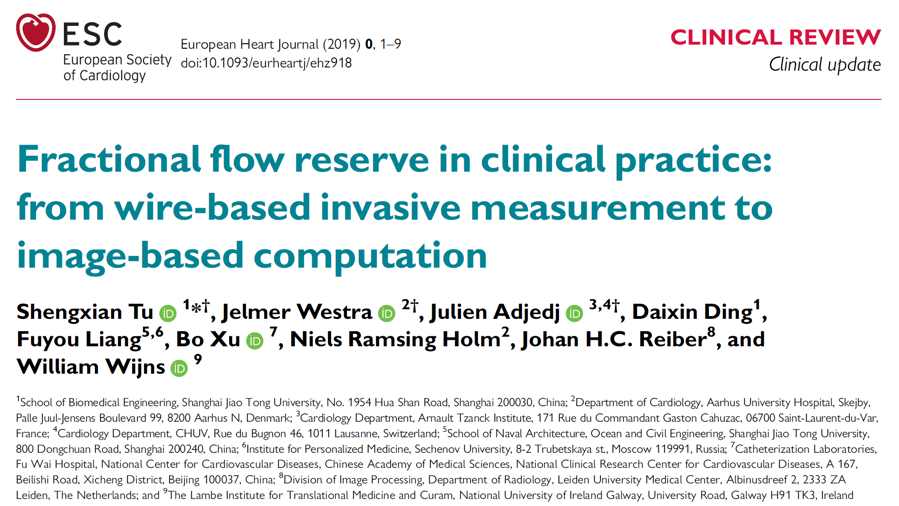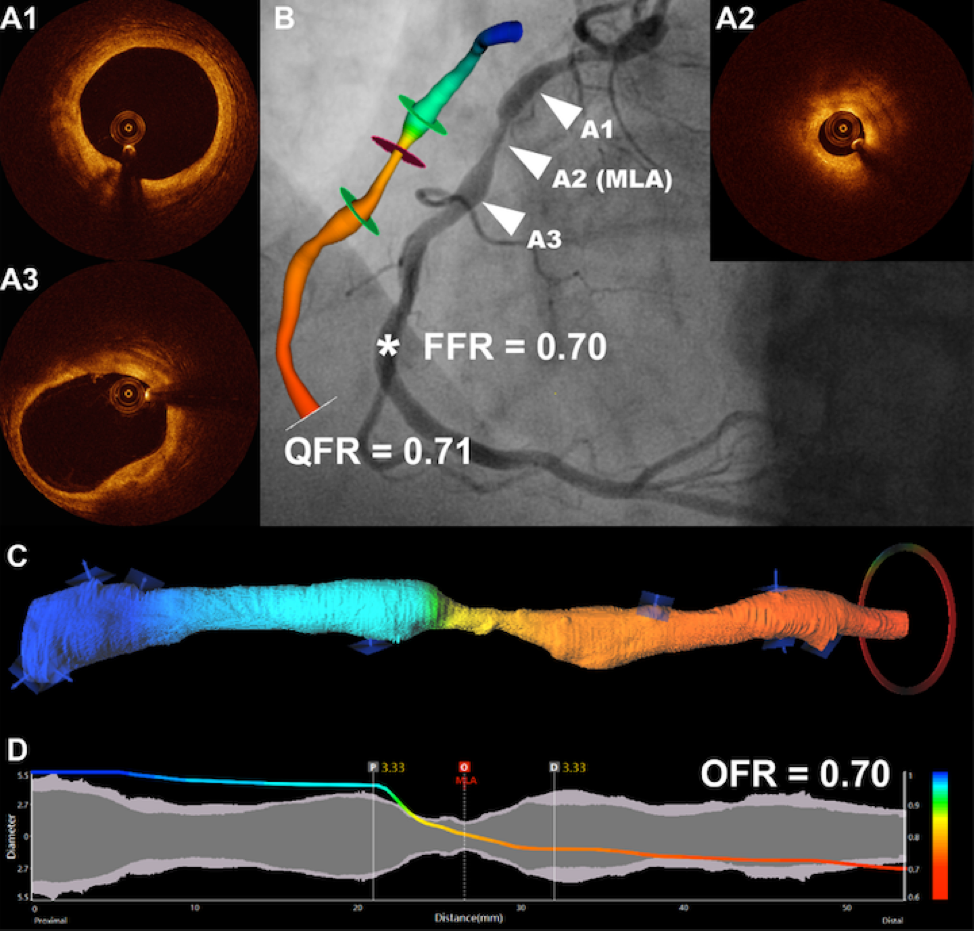


European Heart Journal: Fractional flow reserve in clinical practice: from wire-based invasive measurement to image-based computation by Shengxian Tu
January 02, 2020
Recently, the European Heart Journal (IF=24.889) published an online paper "Fractional flow reserve in clinical practice: from wire-based invasive measurement to image-based computation", the corresponding author is Professor Shengxian Tu, from Academician Yazhu Chen’s team. This article illustrates the current intervention in the international development trend of the techniques used to evaluate coronary physiology function. It mainly introduces various technical classification based on image computing score blood flow reserve (FFR). Also, they discussed the principle and clinical verification results, calculation method of the world's clinical validation data analyzed.

Fractional flow reserve (FFR) and instantaneous wave-free ratio are the present standard diagnostic methods for invasive assessment of the functional significance of epicardial coronary stenosis. Despite the overall trend towards more physiology-guided revascularization, there remains a gap between guideline recommendations and the clinical adoption of functional evaluation of stenosis severity. A number of image-based approaches have been proposed to compute FFR without the use of pressure wire and induced hyperaemia. In order to better understand these emerging technologies, they sought to highlight the principles, diagnostic performance, clinical applications, practical aspects, and current challenges of computational physiology in the catheterization laboratory. Computational FFR has the potential to expand and facilitate the use of physiology for diagnosis, procedural guidance, and evaluation of therapies, with anticipated impact on resource utilization and patient outcomes.

Fig.1 Case example of angiography-derived (quantitative flow ratio) and optical coherence tomography-derived (OFR) fractional flow reserve
Article link:
https://doi.org/10.1093/eurheartj/ehz918